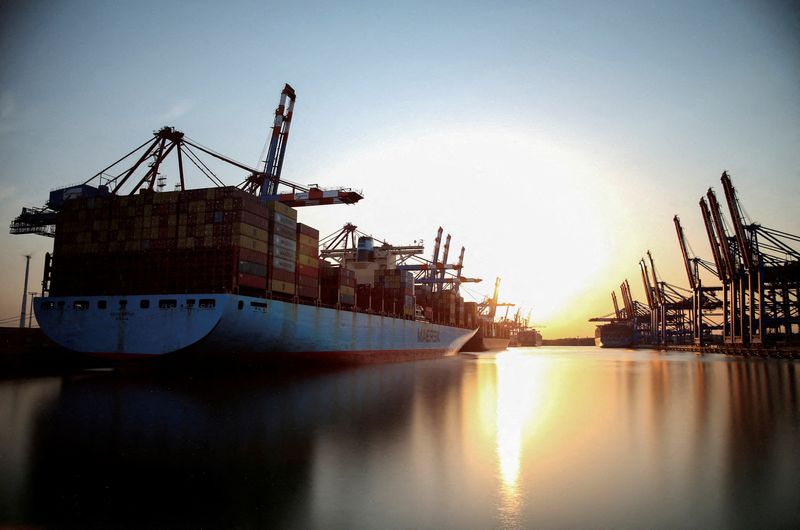By Georgina McCartney
HOUSTON (Reuters) - The shipping industry is under increasing pressure to decarbonize, but unclear regulatory guidelines, including around what sorts of cleaner fuels large vessels should run, is complicating that path to net zero, according to executives.
Global shipping firms are looking for ways to lower their carbon footprints, particularly as the International Maritime Organization (IMO), which regulates the global shipping industry, is being pushed to implement a charge on the sector's greenhouse gas emissions.
The IMO's Maritime Environment Protection Committee concluded its 81st meeting last week, and participants agreed on a possible draft outline of an IMO net-zero framework. Those guidelines, which could bring forward a fuel standard and emissions price, are still open to discussion and could be adopted or amended at the group's next meeting this September.
Shifting to cleaner burner fuels is one path to lowering emissions, executives said last week at the CERAWeek energy conference in Houston, but many in the industry are reluctant to make the changes needed to run new fuels - such as retrofitting engines or purchasing new vessels - given the lack of a longer-term regulatory framework.
"None of us like the fact that we are burning dirty fuel. But no authority is answering what the best fuel is", Andrew Jamieson, co-head of Clearlake Shipping said on the sidelines of the conference.
Shipping accounts for roughly 90% of world trade and is responsible for nearly 3% of the world's carbon dioxide emissions. Most large ships currently run on very low-sulphur fuel oil, a tar-like oil that is relatively inexpensive and energy dense, meaning that a fairly small amount is needed to propel a vessel for great distances.
The lack of clarity leaves players reluctant to commit to one less carbon-intensive fuel over another for their fleets, be it hydrogen-carriers methanol, ammonia, biodiesel or liquefied natural gas (LNG).
Most vessel engines are designed to take one type of fuel and with an average 25-year lifespan, companies run a risk by committing to one fuel that is less developed and less predictable at scale than traditional bunkering fuel.
Uncertainty around fuel and technology in the sector is also driving up costs, as companies are forced to diversify their investments across multiple fuel options, Seonghoon Woo, the CEO of Amogy which builds zero-emission ammonia-fueled power systems, told a panel at CERAWeek.

And cleaner marine fuels, like methanol and ammonia, are also seeing demand from other sectors, such as across Asia where countries are seeking to decarbonize power plants away from coal.
"The question is where will shipping be in the pecking order of availability of fuels going forward”, American Bureau of Shipping CEO, Christopher Wiernicki said on Thursday at CERAWeek.